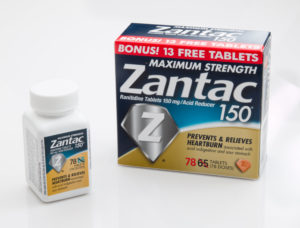CMS proposes new Immediate Jeopardy policy for nursing homes
Providers, you have been heard. On Oct. 27, the Center for Medicare & Medicaid Services (CMS) issued a memo to revise its policy on “immediate jeopardy” in nursing homes, recognizing that the scope of its previous rule may have been too aggressive.
For the first time, a civil money penalty (CMP) will no longer be required as a remedy for certain immediate jeopardy deficiencies where there is no resulting harm. In the new proposed policy, CMS recommends that regional offices use their discretion for determining appropriate remedies over immediate jeopardy deficiencies that don’t result in serious injury, harm, impairment or death.
The regional offices are expected to choose penalties that match the underlying deficiency and take into consideration “the extent to which the noncompliance is the result of a one-time mistake, larger systemic concerns, or an intentional action of disregard for resident health and safety,” the proposed policy reads.
The draft policy change could limit the practice of fining facilities on a per-diem basis, notes Alan C. Horowitz, Esq., RN, healthcare law partner at Arnall Golden Gregory. “Up to this point, CMS could impose a per-day CMP for many months of alleged immediate jeopardy. That could result in a CMP of six figures or higher,” he explains. “This draft policy change would enable the regional offices to impose a per-instance CMP instead of per-diem, when there is immediate jeopardy without resultant serious harm or death. The difference between a per-instance and a per-diem CMP can be more than $1 million.”
The proposed policy change is a sea change for the industry and may have substantial impacts on nursing homes, especially the smaller chains and standalones, Horowitz says.
“Since July 2016, we’ve seen CMPs increase exponentially—often greater than $1 million. But, the practice of issuing six-figure and seven-figure CMPs when there’s no actual harm seems counterproductive and illogical.”
Even if the facility plans to appeal, CMPs still must be paid upfront and held in escrow, a practice Horowitz says he doesn’t see changing any time soon.
The Oct. 27 policy memo replaces S&C: 16-31-NH, issued in July 2016. The comment period on the proposed amendments is open until December 1, 2017.
Related article: Immediate jeopardy: True or false?

Pamela Tabar was editor-in-chief of I Advance Senior Care from 2013-2018. She has worked as a writer and editor for healthcare business media since 1998, including as News Editor of Healthcare Informatics. She has a master’s degree in journalism from Kent State University and a master’s degree in English from the University of York, England.
Related Articles
Topics: Executive Leadership , Finance , Regulatory Compliance










